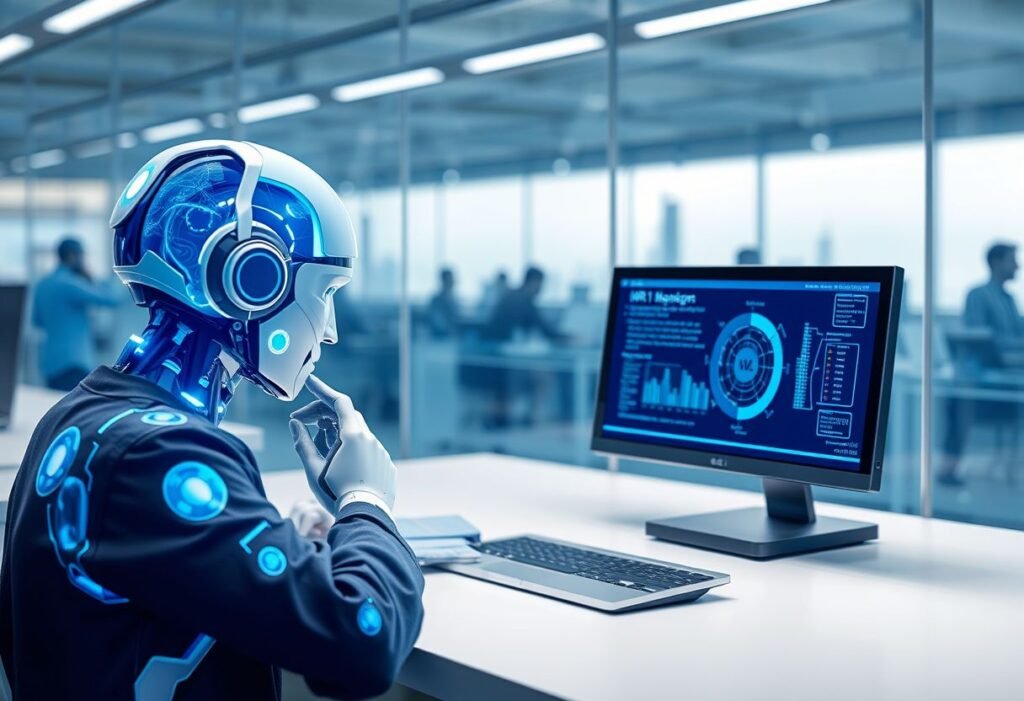Artificial Intelligence (AI) is revolutionizing various sectors, and human resources (HR) management is no exception. This transformation brings forth innovation in recruitment, employee engagement, and performance management, making the HR landscape more efficient and data-driven.
The Role of AI in Recruitment Innovation
AI is dramatically changing the approach to recruitment. Traditional methods often rely on manual processes that can be time-consuming and prone to bias. With AI technologies, companies can leverage machine learning algorithms to analyze resumes and identify the best candidates more swiftly. These systems can scan through hundreds of applications, assessing not just the qualifications but aligning them with company culture and values using predictive analytics. By employing AI-driven tools, organizations can enhance their recruitment process, reducing time-to-hire and improving candidate quality.
Enhancing Employee Engagement through AI
Employee engagement is critical for organizational success, and AI plays a significant role in enhancing it. Modern tools harness data from employee interactions and feedback, allowing HR professionals to gain insights into workforce sentiments. By employing sentiment analysis techniques, AI can monitor employee attitudes and provide actionable recommendations to foster a more engaging workspace. These technologies enable companies to tailor employee experiences, ensuring that individuals feel valued and heard, ultimately boosting productivity and morale.
Performance Management Revolutionized by AI
In performance management, AI brings objectivity and efficiency. Traditional performance reviews can often seem arbitrary and subjective, leading to employee dissatisfaction. With AI, organizations can utilize continuous feedback systems that track performance metrics in real-time. This data-driven approach allows for more precise evaluations and promotes a culture of open communication. By integrating AI in performance management, companies can ensure that their employees receive constructive and timely feedback, which is essential for continuous improvement and innovation.
Training and Development Powered by AI
Training and development have also been significantly enhanced by AI innovation. Companies can now implement personalized learning experiences driven by AI algorithms that assess employee skills and recommend tailored training programs. This creates a dynamic learning environment, where employees can develop their skills at their own pace. Furthermore, AI can analyze the effectiveness of different training programs, helping organizations identify what works best for their workforce. With these insights, HR departments can optimize their development strategies to ensure a skilled and adaptable workforce.
AI in Diversity and Inclusion Initiatives
Diversity and inclusion are pivotal for fostering innovation in the workplace. AI technologies can assist organizations in eliminating biases from hiring and promotion decisions. By using blind recruitment methods and employing algorithms that focus solely on skills and competencies, companies can enhance their diversity efforts. Furthermore, AI can provide data on the efficacy of diversity initiatives, helping HR teams make informed decisions about their programs. This leads to a more inclusive workplace, which ultimately drives creativity and problem solving.
The Future of HR Management with AI Innovation
The future of HR management is firmly rooted in AI innovation. As technologies continue to evolve, the potential for further automation and enhancement in HR processes is immense. From predictive analytics to intelligent chatbots that can answer employee queries, the landscape is set to transform. Companies that embrace these changes will not only streamline their HR functions but also foster a culture of continuous improvement and innovation. By leveraging the full potential of AI, organizations can position themselves at the forefront of the HR industry.
Disclaimer: This article is for informational purposes only and does not constitute professional HR advice. Please consult with a qualified HR professional for specific guidance.





















